Neurocrine Biosciences Announces Once-Daily ONGENTYS® (opicapone) Now Available in the U.S. as an Add-On Treatment for Patients with Parkinson’s Disease Experiencing “Off” Episodes
- ONGENTYS, the First and Only FDA-Approved Once-Daily COMT Inhibitor, Decreases “Off” Time and Increases “On” Time Without Troublesome Dyskinesia When Added to Levodopa/Carbidopa
- FDA Approval of ONGENTYS Supported by Data from 38 Clinical Studies, Including Two Multinational Phase III Clinical Studies (BIPARK-1 and BIPARK-2), with More Than 1,000 Parkinson's Disease Patients Treated with ONGENTYS
San Diego, Sept. 14, 2020 – Neurocrine Biosciences, Inc. (Nasdaq: NBIX) today announced that 50 mg capsules of ONGENTYS® (opicapone), the first and only FDA-approved once-daily catechol-O-methyltransferase (COMT) inhibitor, are now available by prescription in the United States. ONGENTYS was approved by the U.S. Food and Drug Administration (FDA) on April 24, 2020, as an add-on treatment to levodopa/carbidopa in patients with Parkinson’s disease experiencing “off” episodes.
Parkinson’s disease is the second most common neurodegenerative disorder in the United States after Alzheimer’s disease. About one million Americans have Parkinson’s disease and each year, an estimated 50,000 people in the United States are newly diagnosed with this chronic, progressive and debilitating neurodegenerative disorder.
“ONGENTYS is a new treatment option that decreases ‘off’ time, the period of time during the day when Parkinson’s disease symptoms are bothersome, and increases ‘on’ time without troublesome dyskinesia, the period of time during the day when Parkinson’s disease symptoms are better controlled,” said Rebecca Gilbert, M.D., Ph.D., Vice President and Chief Scientific Officer of the American Parkinson Disease Association. “The approval of ONGENTYS is welcome news to people with Parkinson’s disease who are looking for additional medication possibilities to help control the often difficult symptoms of the disease that negatively impact their lives.”
ONGENTYS is an oral, selective COMT inhibitor that helps block the COMT enzyme that breaks down levodopa, the gold standard therapy for controlling motor symptoms in patients with Parkinson’s disease. ONGENTYS helps protect levodopa by reducing its breakdown in the bloodstream, making more levodopa available to reach the brain.
“Parkinson’s disease is a progressive, debilitating condition where people often struggle to control motor fluctuations, impacting many aspects of their daily life,” said Eiry W. Roberts, M.D., Chief Medical Officer at Neurocrine Biosciences. “The availability of ONGENTYS offers hope to patients by significantly reducing daily ‘off’ time, when symptoms return between regular doses of levodopa/carbidopa. The availability of ONGENTYS underscores our commitment to delivering innovative therapies that address unmet medical needs in patients living with movement disorders.”
Neurocrine Biosciences INBRACE® Support Program supports patients who are prescribed ONGENTYS along their treatment journey including information on prescription fulfillment, navigating health insurance coverage requirements and financial assistance. For more information, patients may visit www.INBRACEsupportprogram.com.
The FDA approval of ONGENTYS is supported by data from 38 clinical studies, including two multinational Phase III clinical studies (BIPARK-1 and BIPARK-2), with more than 1,000 Parkinson's disease patients treated with ONGENTYS. In the BIPARK-1 trial, approximately 600 patients with Parkinson’s disease and motor fluctuations received one of three doses of ONGENTYS (5 mg, 25 mg or 50 mg), placebo, or 200 mg doses of the COMT inhibitor entacapone for 14 or 15 weeks. In the BIPARK-2 trial, approximately 400 patients received one of two doses of ONGENTYS (25 mg or 50 mg) or placebo for 14 or 15 weeks. Both studies included a one-year open-label extension. Data from both trials showed that ONGENTYS 50 mg significantly reduced “off” time from baseline to week 14 or 15 compared to placebo. “On” time without troublesome dyskinesia also increased from baseline to week 14 or 15 compared to placebo.
Pooled safety data from the BIPARK-1 and BIPARK-2 studies indicated that the most common adverse reactions across all patients treated with ONGENTYS (incidence at least 4% and greater than placebo) were dyskinesia, constipation, blood creatine kinase increase, hypotension/syncope, and weight decrease.
In June 2016, BIAL – Portela & CA, S.A. (BIAL) received approval from the European Commission for ONGENTYS as an adjunct therapy to preparations of levodopa/DOPA decarboxylase inhibitors in adult patients with Parkinson's disease and end-of-dose motor fluctuations who cannot be stabilized on those combinations. BIAL currently markets ONGENTYS in Germany, United Kingdom, Spain, Portugal and Italy. Neurocrine Biosciences in-licensed opicapone from BIAL in 2017 and has exclusive development and commercialization rights in the United States and Canada.
About Parkinson’s Disease
Parkinson's disease is a chronic, progressive and debilitating neurodegenerative disorder that affects approximately one million people in the United States and six million people worldwide. Parkinson's disease is caused by low dopamine levels produced in the brain. Dopamine helps transmit signals between the areas of the brain that control all purposeful movements, including talking, walking and writing. As Parkinson’s disease progresses, dopamine production steadily decreases, resulting in increased problems with motor symptoms including slowed movement (bradykinesia), tremor, rigidity, impaired posture and balance, and difficulty with speech and writing.
There is presently no cure for Parkinson's disease and management of the disease consists of the use of treatments that attempt to control motor symptoms primarily through dopaminergic mechanisms. The current gold standard for treatment of motor symptoms is levodopa/carbidopa. While levodopa/carbidopa improves patients' motor symptoms, as the disease progresses, the beneficial effects of levodopa begin to wear off more quickly. Patients then experience motor fluctuations throughout the day between “on” time, periods when the medication is working and Parkinson’s disease symptoms are controlled, and “off” time, when the medication is not working and motor symptoms return.
About ONGENTYS® (opicapone) Capsules
ONGENTYS is a unique once-daily, oral, peripheral, selective and reversible catechol-O-methyltransferase (COMT) inhibitor approved by the FDA as an add-on treatment to levodopa/carbidopa in patients with Parkinson’s disease experiencing “off” episodes. ONGENTYS inhibits the COMT enzyme, which breaks down levodopa, making more levodopa available to reach the brain.
Important Information
Approved Use
ONGENTYS® (opicapone) capsules is a prescription medicine used with levodopa and carbidopa in people with Parkinson’s disease (PD) who are having “OFF” episodes.
It is not known if ONGENTYS is safe and effective in children.
Important Safety Information
Do not take ONGENTYS if you:
- take a type of medicine called a non-selective monoamine-oxidase (MAO) inhibitor.
- have a tumor that secretes hormones known as catecholamines.
Before taking ONGENTYS, tell your healthcare provider about all of your medical conditions, including if you:
- have daytime sleepiness from a sleep disorder, have unexpected periods of sleep or sleepiness, or take a medicine to help you sleep or that makes you feel sleepy.
- have had intense urges or unusual behaviors, including gambling, increased sex drive, binge eating, or compulsive shopping.
- have a history of uncontrolled sudden movements (dyskinesia).
- have had hallucinations or psychosis.
- have liver or kidney problems.
- are pregnant or plan to become pregnant, or are breastfeeding or plan to breastfeed.
Tell your healthcare provider about all the medicines you take, including prescription and over-the-counter medicines, vitamins, and herbal supplements. Especially tell your healthcare provider if you take nonselective MAO inhibitors (such as phenelzine, tranylcypromine, and isocarboxazid) or catecholamine medicines (such as isoproterenol, epinephrine, norepinephrine, dopamine, and dobutamine), regardless of how you take the medicine (by mouth, inhaled, or by injection).
ONGENTYS and other medicines may affect each other causing side effects. ONGENTYS may affect the way other medicines work, and other medicines may affect how ONGENTYS works.
What should I avoid while taking ONGENTYS?
- Do not drive, operate machinery, or do other dangerous activities until you know how ONGENTYS affects you.
What are the possible side effects of ONGENTYS?
ONGENTYS may cause serious side effects, including:
- Falling asleep during normal activities such as driving a car, talking or eating while taking ONGENTYS or other medicines used to treat Parkinson’s disease, without being drowsy or without warning. This may result in having accidents. Your chances of falling asleep while taking ONGENTYS are higher if you take other medicines that cause drowsiness.
- Low blood pressure or dizziness, light headedness, or fainting.
- Uncontrolled sudden movements (dyskinesia). ONGENTYS may cause uncontrolled sudden movements or make such movements worse or happen more often.
- Seeing, hearing, or feeling things that are not real (hallucinations), believing things that are not real (delusions), or aggressive behavior.
- Unusual urges (impulse control and compulsive disorders) such as urges to gamble, increased sexual urges, strong urges to spend money, binge eating, and the inability to control these urges.
Tell your healthcare provider if you experience any of these side effects or notice changes in your behavior.
The most common side effects of ONGENTYS include uncontrolled sudden movements (dyskinesia), constipation, increase in an enzyme called blood creatine kinase, low blood pressure, and weight loss.
These are not all the possible side effects of ONGENTYS. Call your healthcare provider for medical advice about side effects. You may report side effects to FDA at 1-800-FDA-1088.
Please see ONGENTYS full Product Information.
About Neurocrine Biosciences
Neurocrine Biosciences is a neuroscience-focused, biopharmaceutical company with 28 years of experience discovering and developing life-changing treatments for people with serious, challenging and under-addressed neurological, endocrine and psychiatric disorders. The company's diverse portfolio includes FDA-approved treatments for tardive dyskinesia, Parkinson’s disease, endometriosis* and uterine fibroids*, with three pivotal and five mid-stage clinical programs in multiple therapeutic areas. Headquartered in San Diego, Neurocrine Biosciences specializes in targeting and interrupting disease-causing mechanisms involving the interconnected pathways of the nervous and endocrine systems. For more information, visit neurocrine.com, and follow the company on LinkedIn. (*in collaboration with AbbVie).
Forward-Looking Statements
In addition to historical facts, this press release contains forward-looking statements that involve a number of risks and uncertainties. These statements include, but are not limited to, statements related to the benefits to be derived from ONGENTYS; the size of the potential market for ONGENTYS; the value ONGENTYS brings to patients; the timing of ONGENTYS's availability; the ability of Neurocrine Biosciences to ensure patients have access to ONGENTYS; our expectations regarding business and financial impacts of the COVID-19 pandemic, including with respect to ONGENTYS availability and the ONGENTYS commercial supply chain and other business operations; and whether results from ONGENTYS's clinical trial results are indicative of real-world results. Among the factors that could cause actual results to differ materially from those indicated in the forward-looking statements are: risks and uncertainties associated with the scale and duration of the COVID-19 pandemic and resulting global, national, and local economic and financial disruptions; risk and uncertainties related to any COVID-19 quarantines, shelter-in-place and similar government orders that are currently in place or that may be put in place in the future, including the impact of such orders on our business operations and the business operations of the third parties on which we rely; risks and uncertainties associated with Neurocrine Biosciences’ business and finances in general, as well as risks and uncertainties associated with the commercialization of ONGENTYS; whether ONGENTYS receives adequate reimbursement from third-party payors; the degree and pace of market uptake of ONGENTYS; risks and uncertainties relating to competitive products and technological changes that may limit demand for ONGENTYS; risks that additional regulatory submissions, for ONGENTYS or other product candidates, may not occur or be submitted in a timely manner; risks that the FDA or other regulatory authorities may make adverse decisions regarding ONGENTYS; risks that post-approval ONGENTYS commitments or requirements may be delayed; risks that ONGENTYS may be precluded from commercialization by the proprietary rights of third parties, or have unintended side effects, adverse reactions or incidents of misuse; risks and uncertainties relating to competitive products and technological changes that may limit demand for ONGENTYS; risks associated with the Company's dependence on BIAL for the commercial supply of, and manufacturing activities related to, ONGENTYS, and the ability of the Company to manage BIAL; and other risks described in the Company's periodic reports filed with the Securities and Exchange Commission, including without limitation the Company's quarterly report on Form 10-Q for the quarter ended June 30, 2020. Neurocrine disclaims any obligation to update the statements contained in this press release after the date hereof.
Contacts:
Navjot Rai (Media)
858-617-7623
[email protected]
Todd Tushla (Investors)
858-617-7143
[email protected]

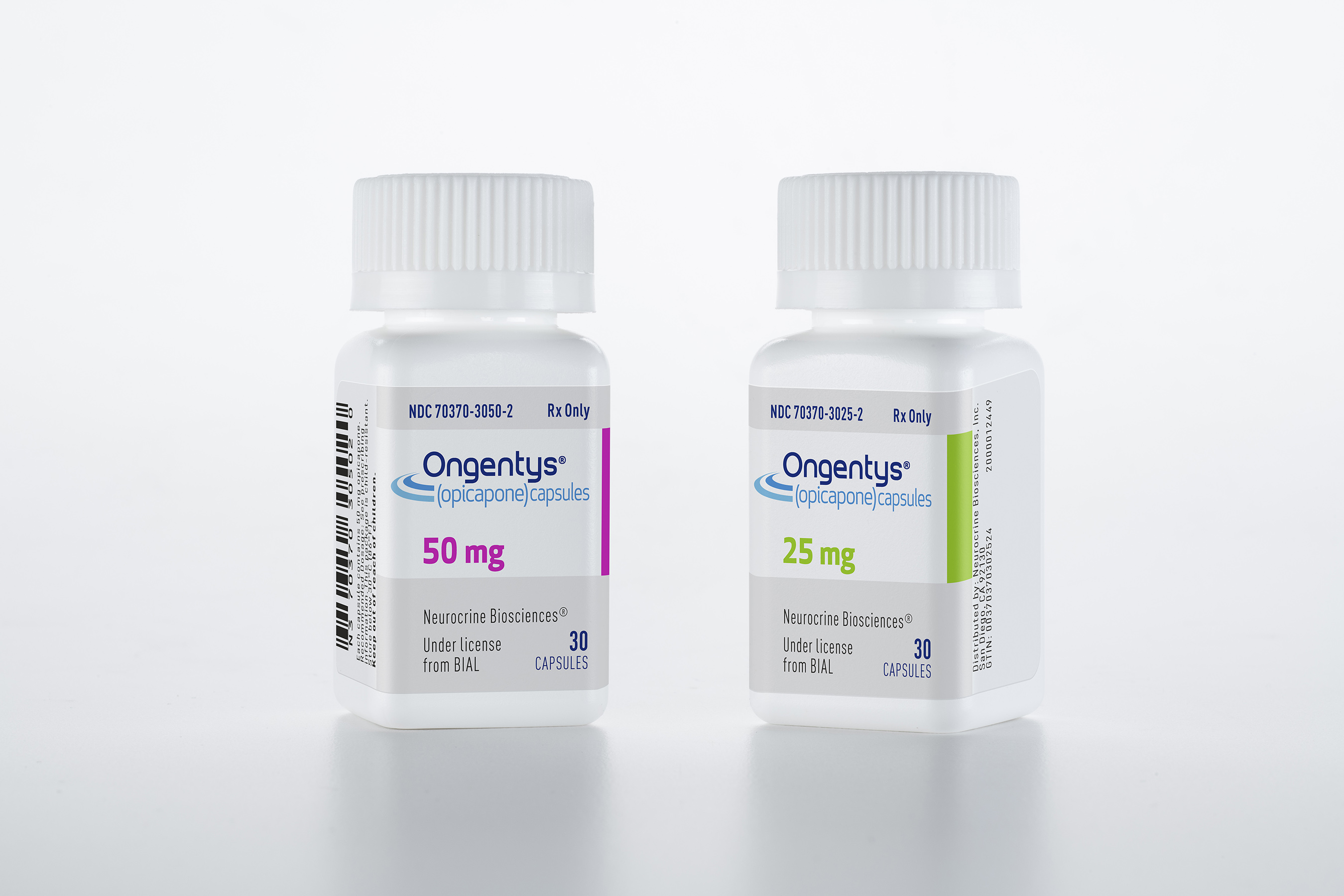
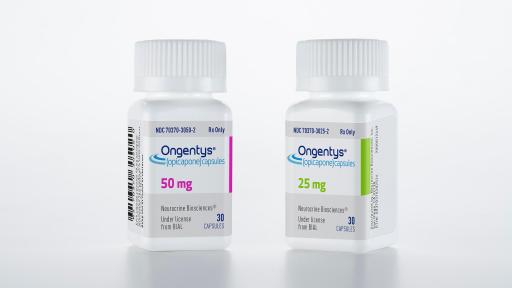
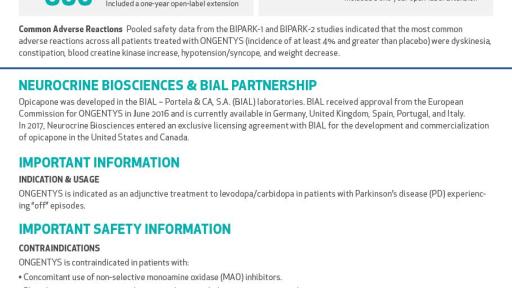
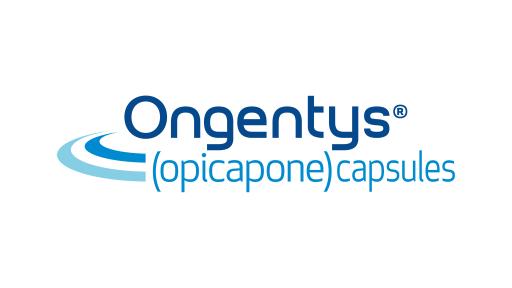
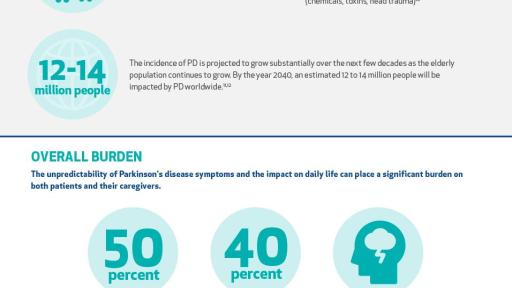



 Neurocrine Biosciences
Neurocrine Biosciences